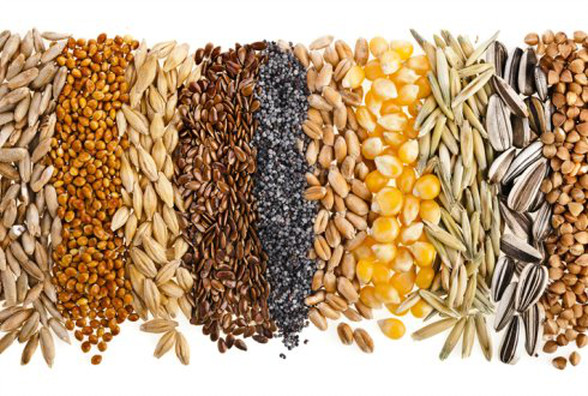
Fibre. It’s pitched as the solution to health really.
Fibre keeps us regular. Fibre keeps us fuller for longer. Fibre can prevent diseases like heart disease and cancer. Fibre can reduce cholesterol and blood sugar levels.
Our foods are marketed as “high in fibre” or “with added fibre”; as if the more fibre we can get, the better! Hell, we even have “fibre drinks” like Metamucil (which is really just a combination of psyllium husk and artificial sweeteners…. don’t even get me started on that one!).
But what they don’t market to you is that fibre can also block you up, cause bloating and gas, and leave you feeling pretty darn uncomfortable!
The Fibre Basics
There are three main types of dietary fibre:
1. Soluble fibre
Helps to keep you feeling full by slowing the emptying of the bowels.
Found in: fruits, vegetables, oats, barley and legumes
2. Insoluble fibre
Helps to soften the bowel contents for regular bowel movements.
Found in: wholegrain breads and cereals, nuts, seeds, wheat and the skin of the fruit and vegetables.
3. Resistant starch
Digested in the large intestine, where it helps produce good bacteria and improve bowel health.
Found in: under ripe bananas, cooked and cooled potato, rice, and undercooked pasta.
How much fibre do you need?
Don’t get me wrong, fibre is essential to your health. But like anything, too much of a good thing can be NOT so good.
There is a happy medium with fibre. Too little, and you’ve probably got the runs. Too much and you’re probably super bloated and struggling to pass anything. Hit the right amount, and you’ve probably got some satisfying and easy flowing bowel movements! (ewww TMI.. I know).
The general recommendation by Nutrition Australia is 25g for females and 30g for males. However, this doesn’t take into account the fact that not all females or males eat the same amount of calories.
A better way to calculate how much fibre you need would be 15g per 1000 calories you eat.
Therefore, a female eating 1,660 calories would need 25g of fibre. But if another female is eating 2,300 calories, then she would need 35g fibre. It really comes down to your caloric intake, not your gender.
Additionally, you may want to pay attention to the TYPE of fibre you’re consuming. If you refer back to the types of fibre, you’ll notice that fruit, vegetables, oats, barley and legumes are the “soluble” type of fibre which tends to SLOW the bowels. Thus, if you’re eating a crazy amount of fruits and vegetables (they’re healthy right?!) then it’s probably the reason you’re feeling so blocked up! Vegetables are great, but you CAN still have too much of them!
What’s the consequence of constipation?
You might think a little bloating and constipation is nothing to be too concerned about. But if it happens on the regular, then it’s definitely a problem you need to address.
If your bowels aren’t moving efficiently, it’s a pretty good indication that something is up with your digestion. And if your digestion isn’t functioning optimally, you are unlikely to be absorbing the nutrients from your food properly. When nutrients aren’t being absorbed, it’s going to make it hard to build lean muscle from the good stuff in the foods you’re eating. It’s also going to make it hard to build a healthy body and set up the ideal environment to lose weight. Not to mention, you’ll probably feel pretty crappy and lethargic. If that’s not incentive to address your bloating and constipation, then I’m not sure what is.
The moral of the story…
If you’re eating really healthy but feeling blocked up, bloated and uncomfortable majority of the time then I highly recommend downloading My Fitness Pal, entering all your food (veggies included, as they are some of the most fibre dense!) and checking whether your fibre intake is sitting within 2-3 grams of the 15g per 1000 calorie rule. If it ISN’T, adjust your food choices to fall within that fibre limit and see if you experience an improvement in your digestive symptoms.
If adjusting your fibre intake doesn’t help, then you may need to address whether you have some uncovered food intolerances, unbalanced gut bacteria or other digestive issues.
With love,
B. x
#health #healthyeating #fibre #nutrition #training #weightloss #fatloss #leanmuscle


